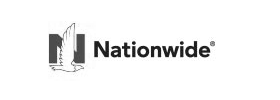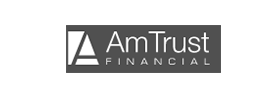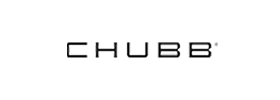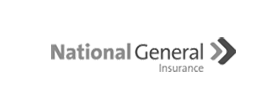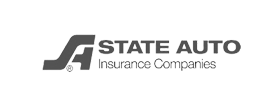Liability Coverage
Aspen Insurance Agency in Denver, CO is proud to provide liability coverage for those around the state. The liability portion of the BACF obligates the insurer to pay all damages the business is legally obligated to pay because of bodily injury or property damage caused by a covered vehicle, up to the policy limits.
When there is an auto liability lawsuit against the insured business, where the loss is covered by the policy, the insurer is obligated to defend the business or settle the lawsuit. The decision whether to contest or settle the case is entirely at the insurer's discretion.
The insurer's duty to defend or settle ends when the insurance policy limits are exhausted. By way of example, imagine that three people are injured in an accident in which you or one of your employees is at fault. The policy limit is exhausted in judgments or settlements for the first two claimants. That leaves your business liable to pay the award directly, should there be a judgment in favor of the third person.
Punitive damages may be awarded in cases of gross negligence, such as drunk or reckless driving. By law in a number of states, a BACF cannot cover any punitive damages for which you may be liable. Even in states where coverage for punitive damages is allowed, your policy may exclude them.
How Much Liability Coverage Does My Business Need?
Many insurers recommend a business auto coverage limit of $1,000,000, with $500,000 as the minimum. The higher limit does not add a great deal to the premium, considering the amount of additional protection it provides.
What Is a Combined Single Limit (CSL)?
Unlike personal auto policies that have separate limits for bodily injury and property damage liability (split limits), the BACF commonly has a Combined Single Limit (CSL). This creates higher limits for both bodily injury and property damage coverages, including per occurrence limits. Although you can purchase other limits, the most common commercial automobile CSLs for a small business are $500,000 and $1,000,000.
Does a Business Umbrella Cover Autos?
If you have a business umbrella policy, it would provide protection for owned, hired and non-owned autos, if the umbrella shows the auto liability policy as an underlying policy for which it provides coverage.
What Coverage Do I Need If My Employees Use Company Vehicles for Personal Business?
Some businesses let employees drive company vehicles home and use them for personal purposes in the evenings or on weekends. So long as these vehicles are scheduled on your business auto policy and the appropriate "coverage auto symbols" are shown on the "Declarations" page, you have coverage for owned autos taken home by employees.
Employees' own personal auto policies will not cover their use of a company car unless the car has been specifically borrowed as a temporary replacement for the employee's own car while it is unavailable. In addition, employees who lease, hire, rent or borrow autos for their personal use are not covered by their employer's business auto policy.
When Your Business Vehicle Is Also Your Personal Vehicle
Sometimes employees or executives of a company or other persons who are supplied with a vehicle owned by the company have only that vehicle. They do not own a personal vehicle, nor do they obtain personal automobile coverage. The BACF does not cover personal use of the vehicle in this situation. To close this coverage gap, you need to add the Drive Other Car Coverage Endorsement to your BACF. This provides insurance while the named individual or a member of his or her family is driving a car borrowed from a third party.
What Coverage Do I Need if Employees Drive Their Personal Vehicles on Business?
If your employees drive their own cars for business purposes-to visit clients, for example-your business could wind up liable for property damage and bodily injuries resulting from a traffic accident for which an employee was at fault.
Sometimes business owners don't notice they have this exposure. Consider these scenarios:
- Your office manager stops by the office supply store to pick up some items for work on her way back from lunch.
- On the way home, a supervisor stops by a client's office to leave a product sample.
- While on vacation, a salesperson driving his personal vehicle makes a brief stop to visit a customer.
These are all situations where a business can find itself liable for an auto accident with damages higher than the policy limit of the employee's personal auto policy.
To protect your business from these liability risks, you can add the Non-owned Auto Liability Endorsement to your BACF. It provides coverage when employees drive their own vehicles on business. This BACF coverage is excess over the limits provided by the employee's personal auto coverage. If the employee's limits are low-such as only to satisfy state financial responsibility limits-then it is critically important for the business to have this non-owned auto protection.
You Are Liable if You Allow a Bad Driver on the Road
You are legally liable when you allow someone to drive one of your vehicles. If you fail to take reasonable steps to determine that the driver is qualified to drive or if you allow someone to drive whom you know has a poor driving record and that person causes an accident, you could be liable for negligent entrustment. Any damages awarded for negligent entrustment would be on top of liability for the accident itself.
A case of negligent entrustment arises when someone allows another person to use a vehicle knowing or having reason to know that the use of the vehicle by that person creates a risk of harm to others.
Your organization is responsible for verifying a driver's qualifications before entrusting him or her with a vehicle. Do not entrust a bad driver with a vehicle-not even for a quick errand.
Keeping Premiums Down
The best way to keep your BACF premiums down is to avoid accidents. Driving safety should be emphasized. Drivers should not be so pressured to produce that they feel compelled to drive unsafely. All vehicles should be well maintained. Ask our team in whether your insurance company has business auto safety resources that you can use to help your organization be accident free.
Contact Aspen Insurance Agency in Denver, Colorado today to request a quote and find out more information. We offer policies in the following states: Arizona, California, Colorado, Florida, Hawaii, Idaho, Illinois, Indiana, Kentucky, , Michigan, Missouri, Montana, Nebraska, New Jersey, New York, North Carolina, Pennsylvania, Ohio, Oregon, South Carolina, South Dakota, Tennessee, Texas, Washington, Wisconsin and Wyoming.
Get a Quote
What we offer
Servicing these States
Aspen Insurance Agency has served the Denver community for over 25 years and has since expanded to help clients in the following states:
- Alabama
- Arizona
- California
- Colorado
- Delaware
- Florida
- Georgia
- Hawaii
- Idaho
- Illinois
- Indiana
- Kentucky
- Massachusetts
- Michigan
- Minnesota
- Missouri
- Montana
- Nebraska
- Nevada
- New Jersey
- New Mexico
- New York
- North Carolina
- Ohio
- Oklahoma
- Oregon
- Pennsylvania
- Rhode Island
- South Carolina
- South Dakota
- Tennessee
- Texas
- Utah
- Virginia
- Washington
- Wisconsin
- Wyoming
Aspen Insurance Agency | Website Development by EZLynx® • Copyright © . All Rights Reserved.


